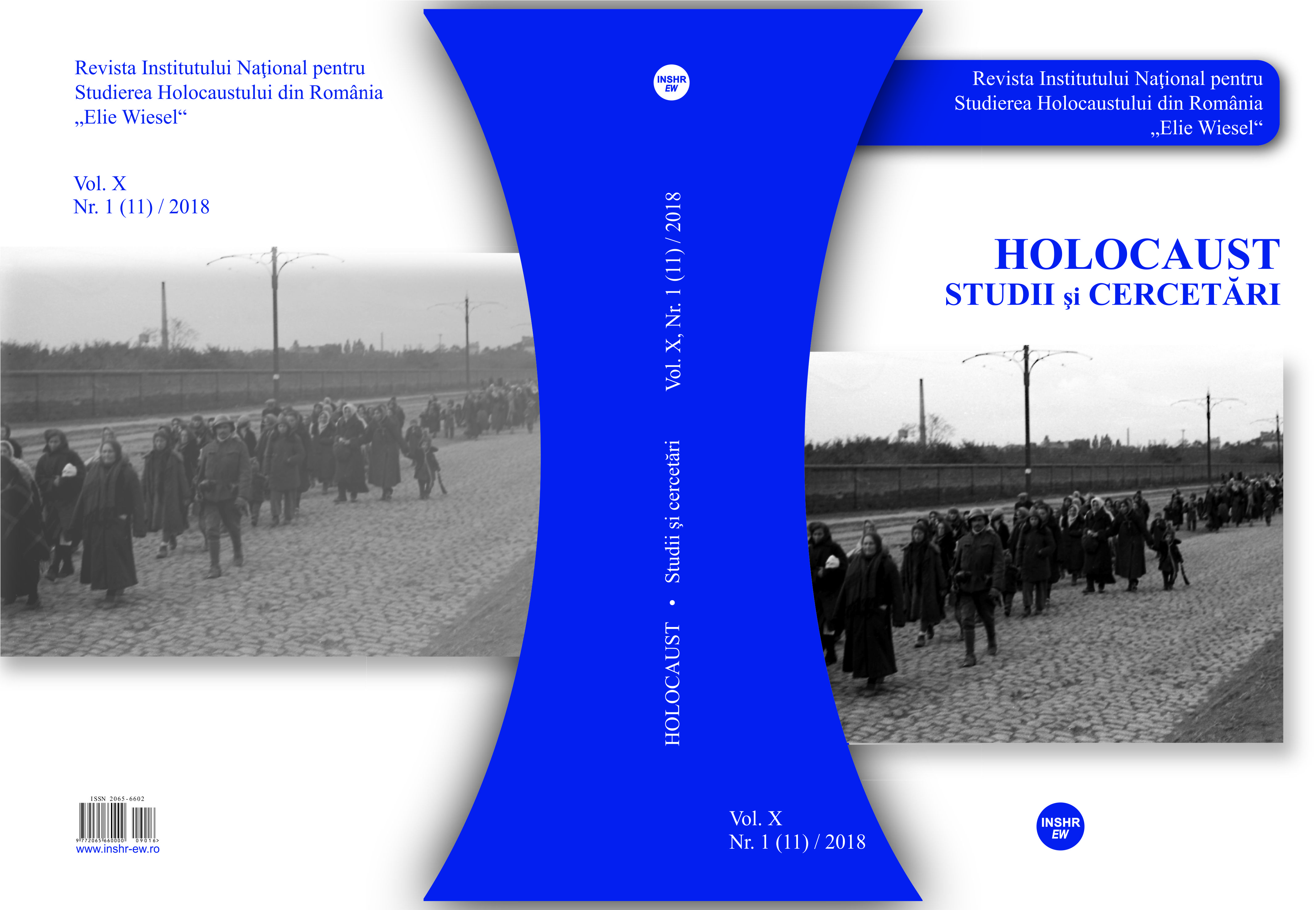Romanian Political Justice. The Holocaust and the War Criminal Trials: the Case of Transnistria
Romanian Political Justice. The Holocaust and the War Criminal Trials: the Case of Transnistria
Author(s): Andrei MuraruSubject(s): History, Jewish studies
Published by: Institutul National pentru Studierea Holocaustului din Romania ELIE WIESEL
Keywords: Holocaust; Transnistria; Romania; Ion Antonescu; Jews; political trials; war criminals; People’s Tribunal; communism; USSR; Odessa; Golta; Berezovka; Dumanovka; Vapniarka; Balta; Mostovoi; Râbnița
Summary/Abstract: During the communist period, the history of the Romanian occupation of Transnistria has been falsified, perverted and distorted. At the same time, in the historiography of Romanian Holocaust, the topic of punishing war crimes has been neglected for a long time. With minor exceptions, even after 1989, the subject did not benefited from a professional perspective because of the lack of sources and also because of the disputes over the traumatic memory from the period 19401989. The attempt to rehabilitate some important figures of war criminals revealed the contradiction between the competitive martyrology and the professional manner in which history should be written. Over the last decades, in the Western historiography the concept of “political trial” received various interpretations. The organization of the trials of war criminals by totalitarian states or by states where dictatorial regimes were about to come to power gave birth to the idea that a “surgical” approach to each judiciary action could offer a balanced way for approaching the topic. The special courts in Romania – People’s Tribunals – created in 1945, functioned in a complicated context and the collective trials organised under their patronage were accompanied by multiple controversies. Given the fact that Romania administered Transnistria, the special tribunals had to deal with the crimes and atrocities committed, during Romanian occupation, against Romanian deported Jews, Ukrainian Jews and Roma. In the three trials that took place between May and July 1945 and which are being analysed in this article, I tried to thoroughly investigate the manner in which the tribunal administered justice. I tried to examine the trials in detail referring to the way in which judicial actors played their role before the court in order to find the truth about de crimes and abuses committed in the districts of Odessa, Golta, Berezovka, Râbnița, Oceakov, Jugastru. In the end, the goal was to offer a broad picture about Romania and its political justice in the postwar period.
Journal: Holocaust. Studii şi cercetări
- Issue Year: X/2018
- Issue No: 11
- Page Range: 89-184
- Page Count: 96
- Language: English
- Content File-PDF

